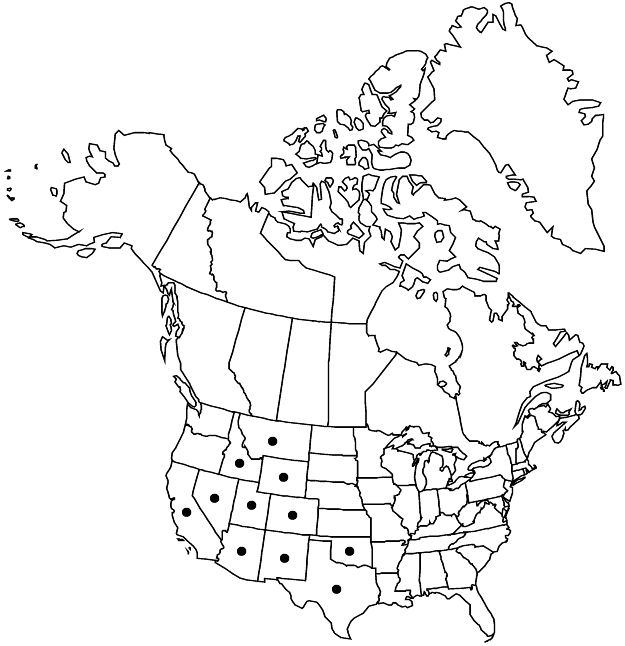Tamarix chinensis
Fl. Cochinch. 1: 182. 1790.
Common names: Saltcedar five-stamen tamarisk
IntroducedWeedy
Synonyms: Tamarix juniperina Bunge
Shrubs or trees, to 8 m. Leaves: blade lanceolate to ovate-lanceolate, 1.5–3 mm. Inflorescences 2–6 cm × 5–7 mm; bract reaching or exceeding pedicel, not exceeding calyx tip. Flowers 5-merous; sepals 0.5–1.5 mm, margins entire; petals elliptic to ovate, 1.5–2 mm; antisepalous stamens 5, filaments alternate with nectar disc lobes, some or all originating from below disc. 2n = 24.
Phenology: Flowering early spring–fall.
Habitat: Riverways, lakeshores, arroyos
Elevation: 0–2500 m
Distribution

Introduced; Ariz., Calif., Colo., Idaho, Mont., Nev., N.Mex., Okla., Tex., Utah, Wyo., e Asia, introduced also in South America (Argentina).
Discussion
Tamarix chinensis, morphologically very similar to T. ramosissima, hybridizes with T. ramosissima (commonly) and T. aphylla (rarely).
Selected References
None.
Lower Taxa
None.